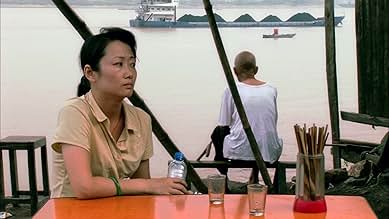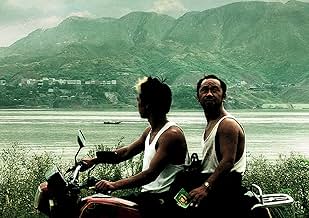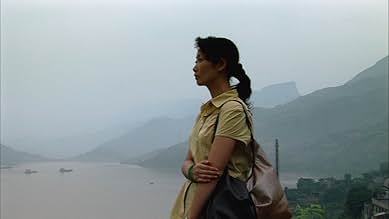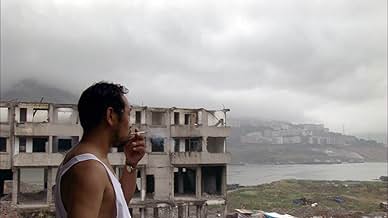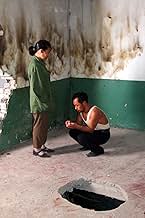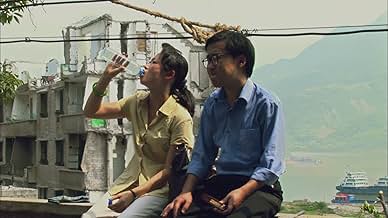This week China announced that about 300,000 more people than planned will be relocated as a result of the construction of the Three Gorges Dam on the Yangtze River, bringing the total displaced to more than 1.4 million. The $22.5-billion US dam, a mega-project five times the size of the Hoover Dam, which has been heavily criticized by environmental and human rights groups, was begun in 1993 but will not go into full operation until 2008. The project's effect on ordinary Chinese is the focus of Jia Zhangke's latest film, Still Life, the surprise winner of the Golden Lion Award at this year's Venice Film Festival.
Set in the village of Fengjie, since submerged in water to make way for the dam, Jia's slow-paced, class-conscious effort dramatizes the life of villagers who have been forced from their homes, had their traditional way of life destroyed, and sent to live in cities against their will, often having to resort to begging and garbage collecting, or even prostitution to stay alive. The film, along with its companion documentary Dong, tells overlapping stories of the emotional trauma of local people caught in the dislocation at Fengjie while a new village is being built.
In the first sequence, Han Sanming, a middle-aged coal miner from Jia's home Shanxi province, arrives on a ferry to look for his ex-wife, Missy after sixteen years of estrangement. All he has to rely on is an address given to him many years ago, completely unaware of the demolition and flooding in the area. Avoiding local swindlers, he tracks down Missy's uncle who tells him that his former wife is now in Yichang with his teenage daughter. Staying on to work in the demolition projects, Han engages in conversations with other workers who complain of the low wages they are receiving (60 to 70 Yuan a day) and want to return to Shanxi province with Han where they can earn 200 Yuan a day working in the dangerous coal mines.
In the second story, Shen Hong (Zhao Tao), a nurse arrives from Shanxi as well and is also searching for a missing person, her husband Guo Bin, who left the family two years ago. She is aided in her search by archaeologist Wang Dongming but it is uncertain what course of action Shen has in mind when she reunites with her husband. The film, however, is not about the story line but about the landscape and the atmosphere, playfully charged by the CG appearance of a UFO and a spaceship that takes off in the middle of the rubble.
In Still Life, Jia demonstrates to the world how one of China's most gorgeous areas, one that brings in 1.3 million tourists a year, has become a scene of squalor. Jia says: "We all know there is major change going on in China and I wanted to get more people to know what's happening. I will continue to make films along these lines and explore the problems of the weaker social classes." If Jia's future projects contain the unmatched cinematography, compelling story, and characters whose lives touch us as Still Life, we have much to look forward to.



